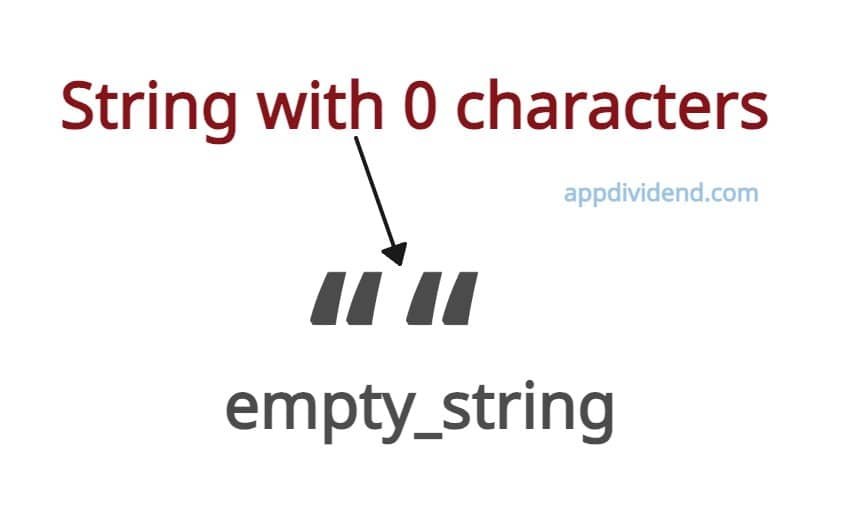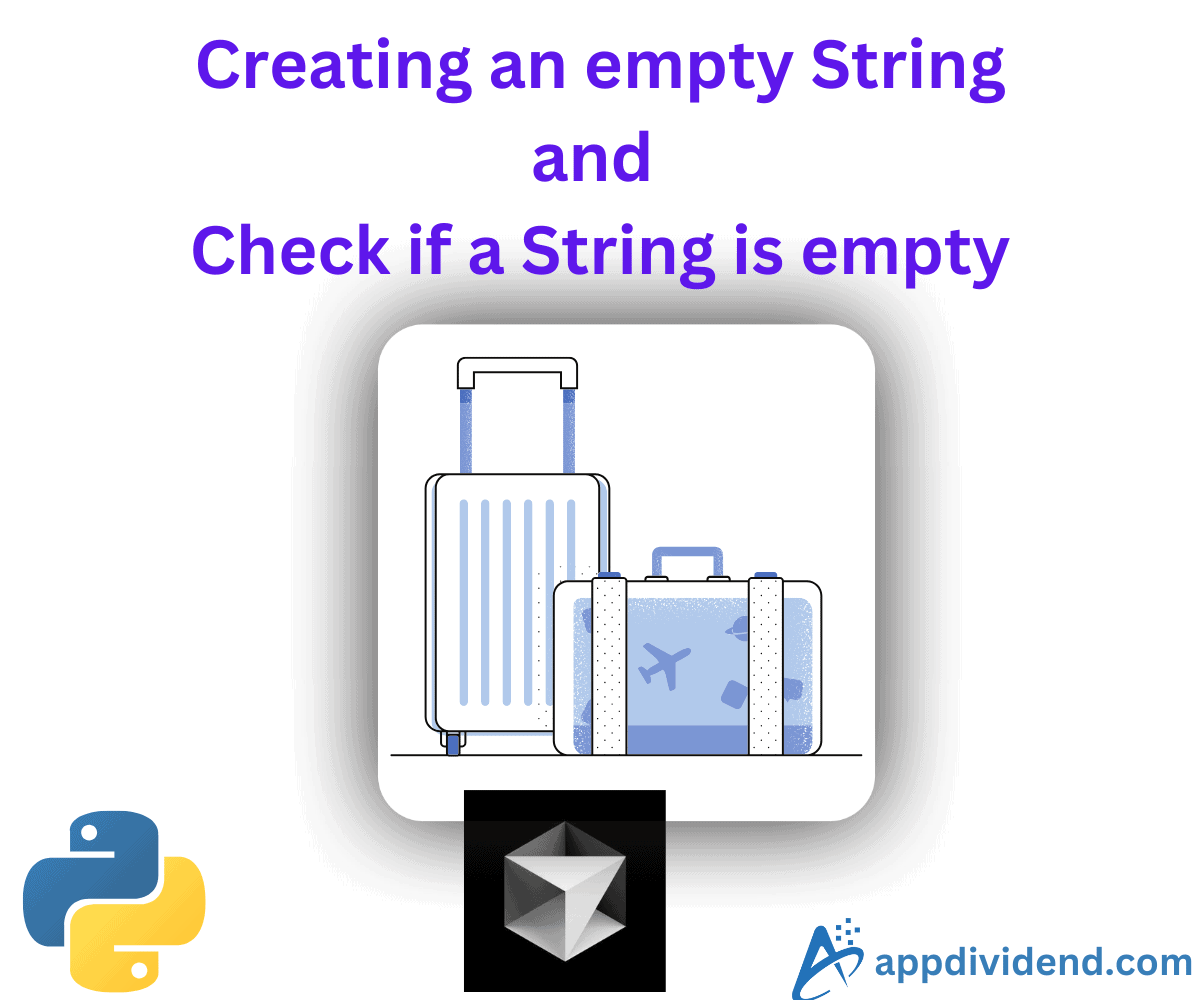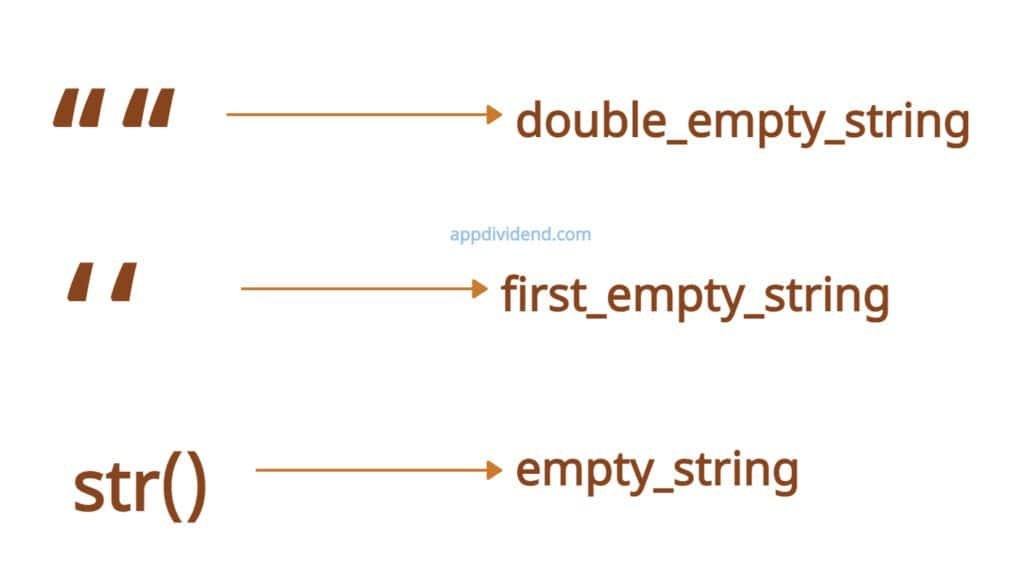An empty string in Python means there are no characters in it. Even spaces can be counted as characters, so empty means empty. Not a single character of any kind.

Creating an empty string
You can create an empty string by assigning double quotes (“”) or single quotes (”) with nothing in between.
double_empty_string = "" print(double_empty_string) # Output: "" print(type(double_empty_string)) # Output: <class 'str'> single_empty_string = '' print(single_empty_string) # Output: '' print(type(single_empty_string)) # Output: <class 'str'>
If you run the above program on the Python terminal, it will display an empty string by printing nothing.
There is a third way to initialize an empty string by using the str() constructor and passing nothing.
empty_string = str() print(empty_string) # Output: '' print(type(empty_string)) # Output: <class 'str'>
Check if a string is empty
In the Boolean context, an empty string is considered False. To check whether a string is empty, you can use the implicit boolean check using the “if not” condition.
double_empty_string = ""
# Checking If a String Is Empty
if not double_empty_string:
print("String is empty")
# Output: String is empty
Let’s check for non-empty strings:
main_str = "Krunal"
# Checking If a String Is Empty
if not main_str:
print("String is empty")
else:
print("String is not empty")
# Output: String is not empty
Our code works fine!
The time complexity of a Boolean check is O(1) because it directly checks the string’s internal flag for emptiness.
Using explicit length check
You can find the string’s length using the len() function and compare it with 0 using the “==” operator.
single_empty_string = ''
# Checking If a String Is Empty
# Explicit Length Check
if len(single_empty_string) == 0:
print("String is empty")
# Output: String is empty
If length is not 0, it is not empty, and does not execute the condition. If it is 0, it is empty.
Its time complexity is O(1) too because strings store their length as metadata, so this is a constant-time operation.
Using direct comparison
We can compare our input string with “==” to check if it is empty.
empty_string = str()
# Checking If a String Is Empty
# Direct Comparison to Empty String
if empty_string == "":
print("String is empty")
# Output: String is empty
That’s it!







